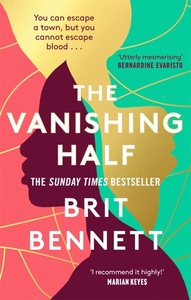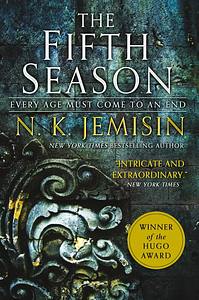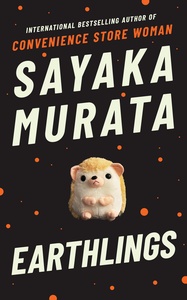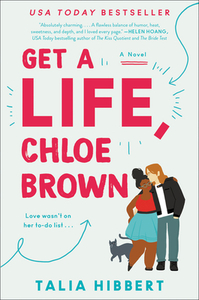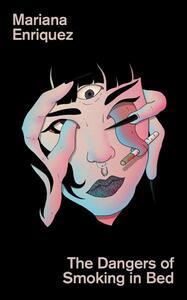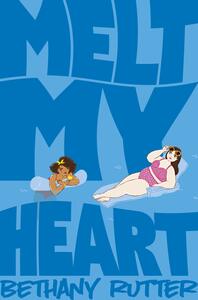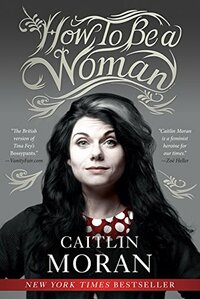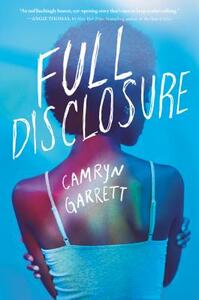Take a photo of a barcode or cover
loiscc's Reviews (313)
I thought The Vanishing Half was a memorable, complex story about the devisive effects of colourism and the identities we make for ourselves.
We are initially introduced to twin sisters; Desiree and Stella Vignes who couldn't be more different, one orderly and proper, the other reckless an impulsive. They come from a small nowhere town called Mallard where everyone is coloured but desirably so; so light skin, white features, wavy hair. However, they desperately want to escape their dead-end lives, so they run away and start a new life in New Orleans.
But the paths of these sisters will diverge again where they will be separated for decades due to Stella's decision to abandon her former life and live the privilege of a white woman.
I loved the complexity of the characterisation in this book, Stella in particular who I found it difficult to judge too harshly despite the pain her family face because of her. It also develops the theme of identity which is something most if not all of these characters continuously struggle with and I thought it handled that sense of disorientation well in a way that was resonant.
The story concludes in an underwhelming way, albeit with a definite sense of closure. Usually this ruins a book for me but I liked that it had a quality of continuity and sentimentality about it. It made me ponder the lives these characters will lead after the story had ended. I'm also partial to this book because of its transgenerational nature which I always love and praise in a book. I love being able to see how our characters grow and evolve and how the challenges they faced have shaped them. Sometimes the writing felt banal but I otherwise loves reading and would recommend this book.
We are initially introduced to twin sisters; Desiree and Stella Vignes who couldn't be more different, one orderly and proper, the other reckless an impulsive. They come from a small nowhere town called Mallard where everyone is coloured but desirably so; so light skin, white features, wavy hair. However, they desperately want to escape their dead-end lives, so they run away and start a new life in New Orleans.
But the paths of these sisters will diverge again where they will be separated for decades due to Stella's decision to abandon her former life and live the privilege of a white woman.
I loved the complexity of the characterisation in this book, Stella in particular who I found it difficult to judge too harshly despite the pain her family face because of her. It also develops the theme of identity which is something most if not all of these characters continuously struggle with and I thought it handled that sense of disorientation well in a way that was resonant.
The story concludes in an underwhelming way, albeit with a definite sense of closure. Usually this ruins a book for me but I liked that it had a quality of continuity and sentimentality about it. It made me ponder the lives these characters will lead after the story had ended. I'm also partial to this book because of its transgenerational nature which I always love and praise in a book. I love being able to see how our characters grow and evolve and how the challenges they faced have shaped them. Sometimes the writing felt banal but I otherwise loves reading and would recommend this book.
⭐2.5 stars⭐ The Fifth season is an intricately woven, apocalyptic book that I was only mildly interested in, to the point where I probably won't be continuing the series.
It is set on this fictional Continent called the Stillness, ironically named due to its flippant dynamism. Every few or hundred years of so, a Fifth Season occurs which are these powerful shakes that are so deadly, they have been known to wipe out entire civilisations. It is under these circumstances that we meet these beings called 'Oregenes' who are hated by regular people because of the their ability to wield the terrible power of the earth and trigger cataclysmic shakes.
At first the three different story arcs running in tandem, but at different points in time, confused me. But the way they all converged at the end was admittedly very clever. In that sense, I could not fault the imaginative structure of this story.
The attention to detail with all the different structural components of this fantasy world really helped to set the scene well. At the same time, I disliked the world-building as much as I loved its fine level of detail. As expected the story was too heavy handed in its use of exposition. This really alienated me from the story and made me care much less about the characters.
There were moments when crucial world elements were nicely weaved into the story in a less cumbersome way but mostly, my experience with this book felt too weighed down by expository verbiage.
Other positives include the scientific and geological discourse, albeit fictitious. Readers who enjoy science-y books with more technical, pragmatic prose will most likely find The Fifth Season enjoyable.
I, on the other hand, was unimpressed by the technical writing style, particularly the overuse of one-word sentences such as 'Oh.' and 'But.' Also, the fact that the characters kept on 'belatedly' remembering things was irksome, characters who were only fractionally developed, save for the main character. Altogether I thought The Fifth Season was an interesting book with promising elements and impressive intricacy, but it ultimately failed to deliver.
It is set on this fictional Continent called the Stillness, ironically named due to its flippant dynamism. Every few or hundred years of so, a Fifth Season occurs which are these powerful shakes that are so deadly, they have been known to wipe out entire civilisations. It is under these circumstances that we meet these beings called 'Oregenes' who are hated by regular people because of the their ability to wield the terrible power of the earth and trigger cataclysmic shakes.
At first the three different story arcs running in tandem, but at different points in time, confused me. But the way they all converged at the end was admittedly very clever. In that sense, I could not fault the imaginative structure of this story.
The attention to detail with all the different structural components of this fantasy world really helped to set the scene well. At the same time, I disliked the world-building as much as I loved its fine level of detail. As expected the story was too heavy handed in its use of exposition. This really alienated me from the story and made me care much less about the characters.
There were moments when crucial world elements were nicely weaved into the story in a less cumbersome way but mostly, my experience with this book felt too weighed down by expository verbiage.
Other positives include the scientific and geological discourse, albeit fictitious. Readers who enjoy science-y books with more technical, pragmatic prose will most likely find The Fifth Season enjoyable.
I, on the other hand, was unimpressed by the technical writing style, particularly the overuse of one-word sentences such as 'Oh.' and 'But.' Also, the fact that the characters kept on 'belatedly' remembering things was irksome, characters who were only fractionally developed, save for the main character. Altogether I thought The Fifth Season was an interesting book with promising elements and impressive intricacy, but it ultimately failed to deliver.
Earthlings is the extremely bizarre but clever story about a young girl called Natsuki Sasamoto who believes she has magical powers and longs for a spaceship to come and take her and her cousin Yuu, back to their home planet.
Natsuki faces a lot of abuse from those closest to her and as a defense mechanism, she forms delusions in her mind and mimics the behaviour of others. Several years pass and Natsuki now lives in a marriage of convenience when a tragic event from her past comes to light, with dire consequences.
Earthlings develops unsettling themes that some readers may find disturbing, including; child abuse, sexual abuse, bullying, gaslighting, victim-blaming, suicide and just when you thought it was over, cannibalism.
Murata has a distinct worldview that explores the darker crevices of humanity and typical human structures such as capitalism. I was completely gripped by Earthlings and I read it in a day, despite the fact that I found it predictable in places. Also from the very outset, this book asks you to suspend your disbelief to eyebrow-raising proportions but within all that absurdity exists a lot of pain and depth.
There is also asexual representation in this book, which comes from a place of trauma and mental illness, but it adds to the complexity of these characters. Though it doesn't in anyway portray the average asexual experience, I thought the ace rep helped develop the characters more fully.
The ending was completely unhinged and left me gobsmacked. Earthlings was a perverse, mind-altering but ultimately thoughtful book.
Natsuki faces a lot of abuse from those closest to her and as a defense mechanism, she forms delusions in her mind and mimics the behaviour of others. Several years pass and Natsuki now lives in a marriage of convenience when a tragic event from her past comes to light, with dire consequences.
Earthlings develops unsettling themes that some readers may find disturbing, including; child abuse, sexual abuse, bullying, gaslighting, victim-blaming, suicide and just when you thought it was over, cannibalism.
Murata has a distinct worldview that explores the darker crevices of humanity and typical human structures such as capitalism. I was completely gripped by Earthlings and I read it in a day, despite the fact that I found it predictable in places. Also from the very outset, this book asks you to suspend your disbelief to eyebrow-raising proportions but within all that absurdity exists a lot of pain and depth.
There is also asexual representation in this book, which comes from a place of trauma and mental illness, but it adds to the complexity of these characters. Though it doesn't in anyway portray the average asexual experience, I thought the ace rep helped develop the characters more fully.
The ending was completely unhinged and left me gobsmacked. Earthlings was a perverse, mind-altering but ultimately thoughtful book.
Black Joy is an unapologetically freeing collection of essays, edited by Charlie Brinkhurst-Cuff, an award-winning journalist and editor and Timi Sotire, also a journalist specialising in music and culture. It was recently released in the U.K. on 2nd September so the paperback edition is not yet available at the time of writing this but you can purchase the hardback and kindle versions on Amazon.
I thought long and hard about how best to express my appreciation for this book such that you would be moved to read it. There's still so much ambivalence in the book community towards Black voices and their stories in favour of more dominant white-centric narratives. But to only read those stories is to miss out on such gems as
I thought long and hard about how best to express my appreciation for this book such that you would be moved to read it. There's still so much ambivalence in the book community towards Black voices and their stories in favour of more dominant white-centric narratives. But to only read those stories is to miss out on such gems as
Get a Life, Chloe Brown felt like the perfect cavities-induced rainbows and lollipops chicklit story, with an extra sprinkling of erotic spice. Lovers of sweet, whimsical romances and happy endings will enjoy this book.
It follows the main character, the titular Chloe Brown, who after experiencing a near-death experience, finally decides to 'get a life.' Despite her chronic illness and troubled past, this meticulous lady is determined to accomplish all the activities on her daring list, that is until she meets Redford Morgan and gets far more than what she bargained for.
Let me preface this by saying how much I applaud the characterisation of our main protagonist, with her quirky, memorable idiosyncrasies and how desirably she is depicted throughout the novel as a black, fat and disabled woman. The way it deviates from typical ideas about romance novels and which type of women are heralded as beautiful and desirable, will resonate with the overlooked readers and will hopefully become part of a growing pool of literature that helps to deconstruct our deeply embedded and erroneous views about beauty.
Now onto the story. Critically speaking, I thought this book was rip-roaring fun, however, I was disappointed by the amount of manufactured conveniences in the writing, from the shared view Chloe and Redford have into each other's flats from their perfectly positioned windows to Redford's coincidentally timed appearance when Chloe got stuck in a tree. The whole thing seemed unrealistic to me, such that it blurred the lines between 'suspension-of-disbelief' style fate and unimaginative cliche.
There was also something about the dialogue that felt irreconcilable. It was in equal parts overly theatrical, pornographic and frustratingly banal. Which leads me onto my thoughts on all the erotic bits of the story. I found the cutesy, wholesome nature of Chloe and Red's tentative but growing affections, felt slightly incongruent with all the pornographic portrayals of graphic sex that towards the end of the book became more and more prolific. That's not to say I didn't enjoy these delightful scenes, it's that they were tonally inconsistent with what it otherwise an airy, light and fluffy book.
Red (the love interest) had his moments but his sensitivity and empathy towards Chloe's condition made him endearing and loveable. I did end up getting annoyed with his character because, as much as we love the fact that he is so completely 'head-over-heels' obsessed with Chloe, his arousal at almost every banal action she took became extremely tedious. Other characters I felt endeared to were Chloe's grandmother Gigi, whose characterisation gave the story an extra flare of humour.
Overall, I enjoyed the swoon-worthy nature of this book. It wasn't enough to compel me to read the rest of the series but if you're looking for a sexy, pick-me-up of a book, then I'd recommend you look no further!
It follows the main character, the titular Chloe Brown, who after experiencing a near-death experience, finally decides to 'get a life.' Despite her chronic illness and troubled past, this meticulous lady is determined to accomplish all the activities on her daring list, that is until she meets Redford Morgan and gets far more than what she bargained for.
Let me preface this by saying how much I applaud the characterisation of our main protagonist, with her quirky, memorable idiosyncrasies and how desirably she is depicted throughout the novel as a black, fat and disabled woman. The way it deviates from typical ideas about romance novels and which type of women are heralded as beautiful and desirable, will resonate with the overlooked readers and will hopefully become part of a growing pool of literature that helps to deconstruct our deeply embedded and erroneous views about beauty.
Now onto the story. Critically speaking, I thought this book was rip-roaring fun, however, I was disappointed by the amount of manufactured conveniences in the writing, from the shared view Chloe and Redford have into each other's flats from their perfectly positioned windows to Redford's coincidentally timed appearance when Chloe got stuck in a tree. The whole thing seemed unrealistic to me, such that it blurred the lines between 'suspension-of-disbelief' style fate and unimaginative cliche.
There was also something about the dialogue that felt irreconcilable. It was in equal parts overly theatrical, pornographic and frustratingly banal. Which leads me onto my thoughts on all the erotic bits of the story. I found the cutesy, wholesome nature of Chloe and Red's tentative but growing affections, felt slightly incongruent with all the pornographic portrayals of graphic sex that towards the end of the book became more and more prolific. That's not to say I didn't enjoy these delightful scenes, it's that they were tonally inconsistent with what it otherwise an airy, light and fluffy book.
Red (the love interest) had his moments but his sensitivity and empathy towards Chloe's condition made him endearing and loveable. I did end up getting annoyed with his character because, as much as we love the fact that he is so completely 'head-over-heels' obsessed with Chloe, his arousal at almost every banal action she took became extremely tedious. Other characters I felt endeared to were Chloe's grandmother Gigi, whose characterisation gave the story an extra flare of humour.
Overall, I enjoyed the swoon-worthy nature of this book. It wasn't enough to compel me to read the rest of the series but if you're looking for a sexy, pick-me-up of a book, then I'd recommend you look no further!
tw: homophobia
The Star Side of Bird Hill is about two sisters; Dionne and Phaedra, who live with their mother, Avril, in Brooklyn. But due to their mother's failing mental health, the girls are sent to live with their grandmother, Hyacinth in Barbados. Whilst Phaedra becomes more and more enamoured with the country of her heritage and her grandmother's root work, Dionne harbours a growing resentment towards her mother and wants nothing more than to return to Brooklyn and her old life.
This debut novel is a coming-of-age story that handles some heavy themes, such as grief, child neglect and the dichotomy between family estrangement as well as its enduring ability to bend but never truly break.
Jackson has an emotive writing style, portrayed in a very subtle way; the story doesn't particularly jump off the page and grab the reader's attention but it did feel meaningful, if a little prosaic. But to the book's credit, the characters were masterfully developed and they felt extremely authentic, like they were real people i.e. Hyacinth's unwavering practicality is a reflection of how older Caribbean women typically tend to bear up and carry on despite life's adversities, no matter how tough; Dionne is an adolescent whose defensive, self-assured behaviour is really a sign of feeling lost and vulnerable whilst Phaedra is transparent with her emotions.
The whole story arc surrounding Father Loving felt altogether unresolved for me but overall, I thought The Star Side of Bird Hill was a deep, searching novel and a powerful debut.
The Star Side of Bird Hill is about two sisters; Dionne and Phaedra, who live with their mother, Avril, in Brooklyn. But due to their mother's failing mental health, the girls are sent to live with their grandmother, Hyacinth in Barbados. Whilst Phaedra becomes more and more enamoured with the country of her heritage and her grandmother's root work, Dionne harbours a growing resentment towards her mother and wants nothing more than to return to Brooklyn and her old life.
This debut novel is a coming-of-age story that handles some heavy themes, such as grief, child neglect and the dichotomy between family estrangement as well as its enduring ability to bend but never truly break.
Jackson has an emotive writing style, portrayed in a very subtle way; the story doesn't particularly jump off the page and grab the reader's attention but it did feel meaningful, if a little prosaic. But to the book's credit, the characters were masterfully developed and they felt extremely authentic, like they were real people i.e. Hyacinth's unwavering practicality is a reflection of how older Caribbean women typically tend to bear up and carry on despite life's adversities, no matter how tough; Dionne is an adolescent whose defensive, self-assured behaviour is really a sign of feeling lost and vulnerable whilst Phaedra is transparent with her emotions.
The whole story arc surrounding Father Loving felt altogether unresolved for me but overall, I thought The Star Side of Bird Hill was a deep, searching novel and a powerful debut.
The Dangers Of Smoking in Bed by Mariana Enriquez is a disturbing, eerie collection of short stories.
Set mostly in Buenos Aires, Argentina, these are stories about trapped souls, family betrayals, unexplainable events and perverse pleasures. This is the type of twisted horror that stems more from the dark underbelly of humanity but also with a gruesome subtlety.
I thought these stories were immensely attention-grabbing in all its bizarreness. Unfortunately its not always politically correct such as one particular character, in one of the stories towards the end, who is constantly referred to in a derogatory way rather than just being given a name and there were some earlier references to blackness and trans people that were questionable. These bits of the narrative were hard to reconcile with but I also felt it was used to highlight the ignorance of Enriquez' already deeply flawed characters.
It was otherwise a horrifyingly, eerily good book, perfect for spooky season, however please check content warnings before reading. ⚠️ some that I can think of include; child death, rape, ethnic slurs, transphobia, abuse, addiction etc.
Set mostly in Buenos Aires, Argentina, these are stories about trapped souls, family betrayals, unexplainable events and perverse pleasures. This is the type of twisted horror that stems more from the dark underbelly of humanity but also with a gruesome subtlety.
I thought these stories were immensely attention-grabbing in all its bizarreness. Unfortunately its not always politically correct such as one particular character, in one of the stories towards the end, who is constantly referred to in a derogatory way rather than just being given a name and there were some earlier references to blackness and trans people that were questionable. These bits of the narrative were hard to reconcile with but I also felt it was used to highlight the ignorance of Enriquez' already deeply flawed characters.
It was otherwise a horrifyingly, eerily good book, perfect for spooky season, however please check content warnings before reading. ⚠️ some that I can think of include; child death, rape, ethnic slurs, transphobia, abuse, addiction etc.
Melt My Heart is a boundlessly energetic and cutesy teen romance novel that sees Lily Rose, a fat, seventeen year old girl from Weston Bay, on a mission to step out of her comfort zone and try New Things before she has to go away to university. Part of her plan involves dating which is foreign territory for her, unlike her hot twin sister, Daisy, but thankfully she has her best friend, Cassie on hand to help.
I loved the way this book started, I was immediately on board within the first few pages. The writing has a presence that grabs your attention from the outset. I also loved the bisexual and fat representation and how these aspects of one's personality are things to be celebrated despite daily microaggressions that constantly typify the experiences of people like Lily and Cassie.
This book did really irk me inasmuch as I enjoyed it; I loved how authentic it was but it also felt hurried in places as though I was reading an abridged version of actual events. Certain story arcs ended before they even began and the development of the story overall felt more surface-level than I would've liked. It was so skeletal that for some sections, you could get away with just reading dialogue (not that I did that).
This book is really conscientious, but I had a few niggling issues in terms of how it represents different communities, such as the couple of occasions where Muslim hijabi women have their hijabs referred to as headscarves rather than by its actual name. I might be reading too much into things (since Muslim women also use the term 'scarf' as well as 'hijab' interchangeably) but there's an element of erasure in not defining things as they are and instead using words that might sound more palatable.
Despite my issues with the rushed nature of this book, I have to take into consideration the audience that Melt My Heart is primarily aimed at. As a light-hearted, teen romance (kind of coming-of-age) story, the breeziness of it will go down well with younger readers, especially those who can see something of themselves in Lily's lovable character.
I loved the way this book started, I was immediately on board within the first few pages. The writing has a presence that grabs your attention from the outset. I also loved the bisexual and fat representation and how these aspects of one's personality are things to be celebrated despite daily microaggressions that constantly typify the experiences of people like Lily and Cassie.
This book did really irk me inasmuch as I enjoyed it; I loved how authentic it was but it also felt hurried in places as though I was reading an abridged version of actual events. Certain story arcs ended before they even began and the development of the story overall felt more surface-level than I would've liked. It was so skeletal that for some sections, you could get away with just reading dialogue (not that I did that).
This book is really conscientious, but I had a few niggling issues in terms of how it represents different communities, such as the couple of occasions where Muslim hijabi women have their hijabs referred to as headscarves rather than by its actual name. I might be reading too much into things (since Muslim women also use the term 'scarf' as well as 'hijab' interchangeably) but there's an element of erasure in not defining things as they are and instead using words that might sound more palatable.
Despite my issues with the rushed nature of this book, I have to take into consideration the audience that Melt My Heart is primarily aimed at. As a light-hearted, teen romance (kind of coming-of-age) story, the breeziness of it will go down well with younger readers, especially those who can see something of themselves in Lily's lovable character.
How to Be a Woman is a hilarious feminist memoir that sees Caitlin Moran drawing upon each phase in her personal life to argue all the ways in which the patriarchy is suppressing women today. This memoir has a gloves-off, in-your-faceness about it that was also super approachable and shows how conversations on feminism affects almost all aspects of a woman's life, from the time she first gets her period to her fertile years and beyond!
Unfortunately, though appealing to the everyday (hem hem) white woman in terms of finding her bearings within the feminist movement, Moran's overall argument wasn't very intersectional. That is to say, she does little to acknowledge the ways in which marginalized, non-white, non-straight, non-cis women suffer under the patriarchy.
Some questionable comments were made about the burqa and colonization that struck me as very unconscientious. For example, Moran speaks about how she's against the burqa but she's also for women dressing how they please... seems like the two statements cancel each other out in my opinion.
And when referring to the fact that most historical achievements have been attained by men, she cites as examples periods of colonial history where women are nowhere to be found; during the discovery of the Americas or fighting the many wars waged against the 'Indians' they found there. Moran essentially makes light of colonization in these examples. The issues of invasion and forced oppression (all feminist issues btw) are overshadowed by the issue of women not achieving the same feats as men throughout history.
How to Be a Woman is therefore not always politically correct, but its also not completely oblivious either, plus it does make some sound arguments about the conditioning of Westernized women; the fact that we're expected to love shopping and wearing high heels etc. And I loved how Moran speaks so freely about things that women are typically groomed to 'shy away' from. How to Be a Woman is a riotously funny and unbridled book.
Unfortunately, though appealing to the everyday (hem hem) white woman in terms of finding her bearings within the feminist movement, Moran's overall argument wasn't very intersectional. That is to say, she does little to acknowledge the ways in which marginalized, non-white, non-straight, non-cis women suffer under the patriarchy.
Some questionable comments were made about the burqa and colonization that struck me as very unconscientious. For example, Moran speaks about how she's against the burqa but she's also for women dressing how they please... seems like the two statements cancel each other out in my opinion.
And when referring to the fact that most historical achievements have been attained by men, she cites as examples periods of colonial history where women are nowhere to be found; during the discovery of the Americas or fighting the many wars waged against the 'Indians' they found there. Moran essentially makes light of colonization in these examples. The issues of invasion and forced oppression (all feminist issues btw) are overshadowed by the issue of women not achieving the same feats as men throughout history.
How to Be a Woman is therefore not always politically correct, but its also not completely oblivious either, plus it does make some sound arguments about the conditioning of Westernized women; the fact that we're expected to love shopping and wearing high heels etc. And I loved how Moran speaks so freely about things that women are typically groomed to 'shy away' from. How to Be a Woman is a riotously funny and unbridled book.
Simone is a sixteen-year-old high school student with a secret...
She was born with HIV, which means that unlike most her age, she has to take medication everyday and make frequent hospital visits to keep her viral load under control. She's also unsure about her sexual identity, believing that she's bi, but in equal measure not bi enough. As Simone navigates the harsh, punishing terrain of high school, she comes to the realisation that her illness does not define her.
I loved the sweetness of this story as well as the way it confronts people's ignorance about HIV and who can get it and it's redemptively bright ending. It celebrates multiple sidelined identities in a way that was so refreshing to read about.
The story itself, the writing and the progression of the plot followed the same formula as practically every other teen romance/coming-out story I've ever read, just with a different premise. Also, the identity of Simone's main antagonist when it was revealed towards the end the book was so predictable, I literally rolled my eyes at its obviousness.
But in and of itself, I thought this was a fantastic, imperative debut and would wholly recommend.
She was born with HIV, which means that unlike most her age, she has to take medication everyday and make frequent hospital visits to keep her viral load under control. She's also unsure about her sexual identity, believing that she's bi, but in equal measure not bi enough. As Simone navigates the harsh, punishing terrain of high school, she comes to the realisation that her illness does not define her.
I loved the sweetness of this story as well as the way it confronts people's ignorance about HIV and who can get it and it's redemptively bright ending. It celebrates multiple sidelined identities in a way that was so refreshing to read about.
The story itself, the writing and the progression of the plot followed the same formula as practically every other teen romance/coming-out story I've ever read, just with a different premise. Also, the identity of Simone's main antagonist when it was revealed towards the end the book was so predictable, I literally rolled my eyes at its obviousness.
But in and of itself, I thought this was a fantastic, imperative debut and would wholly recommend.
